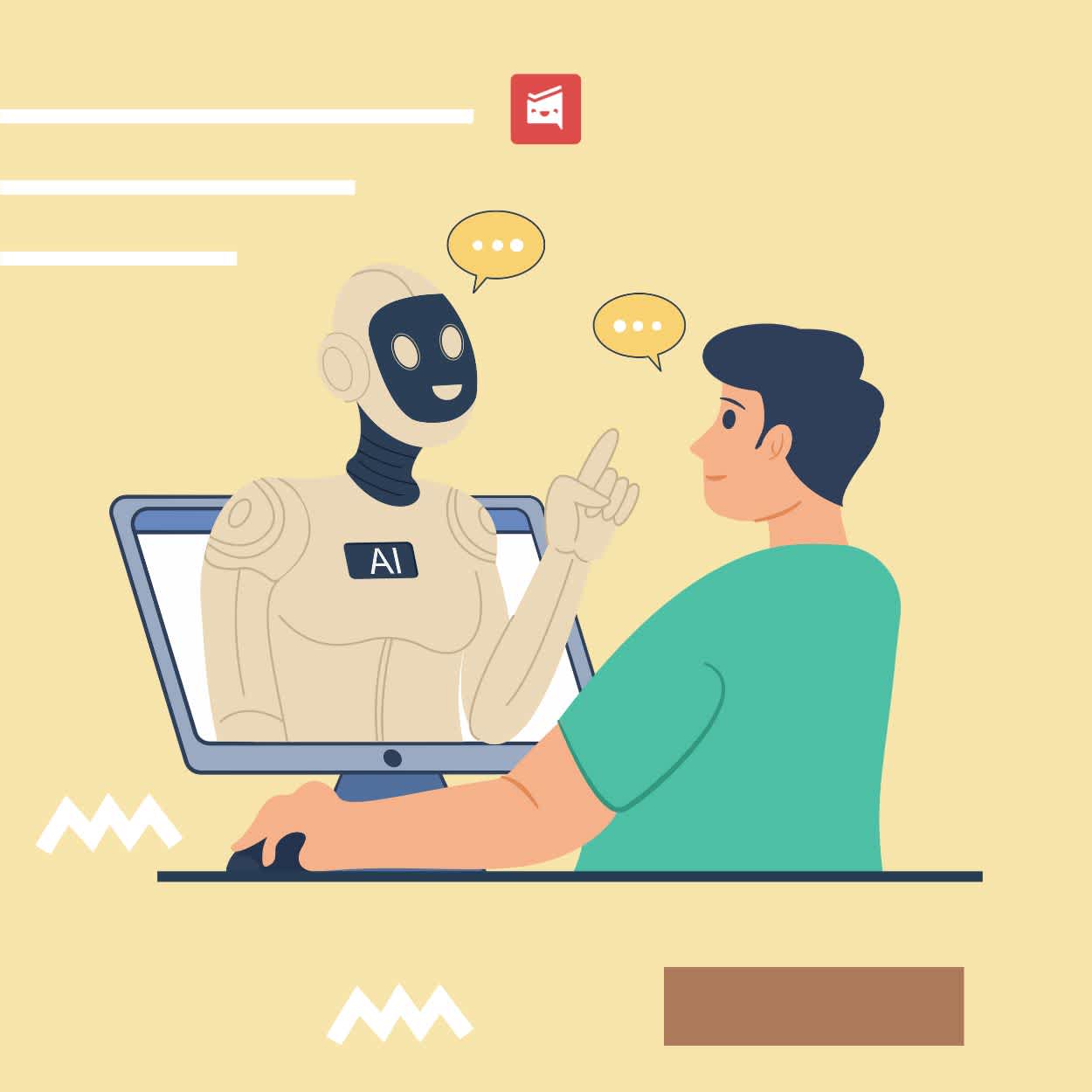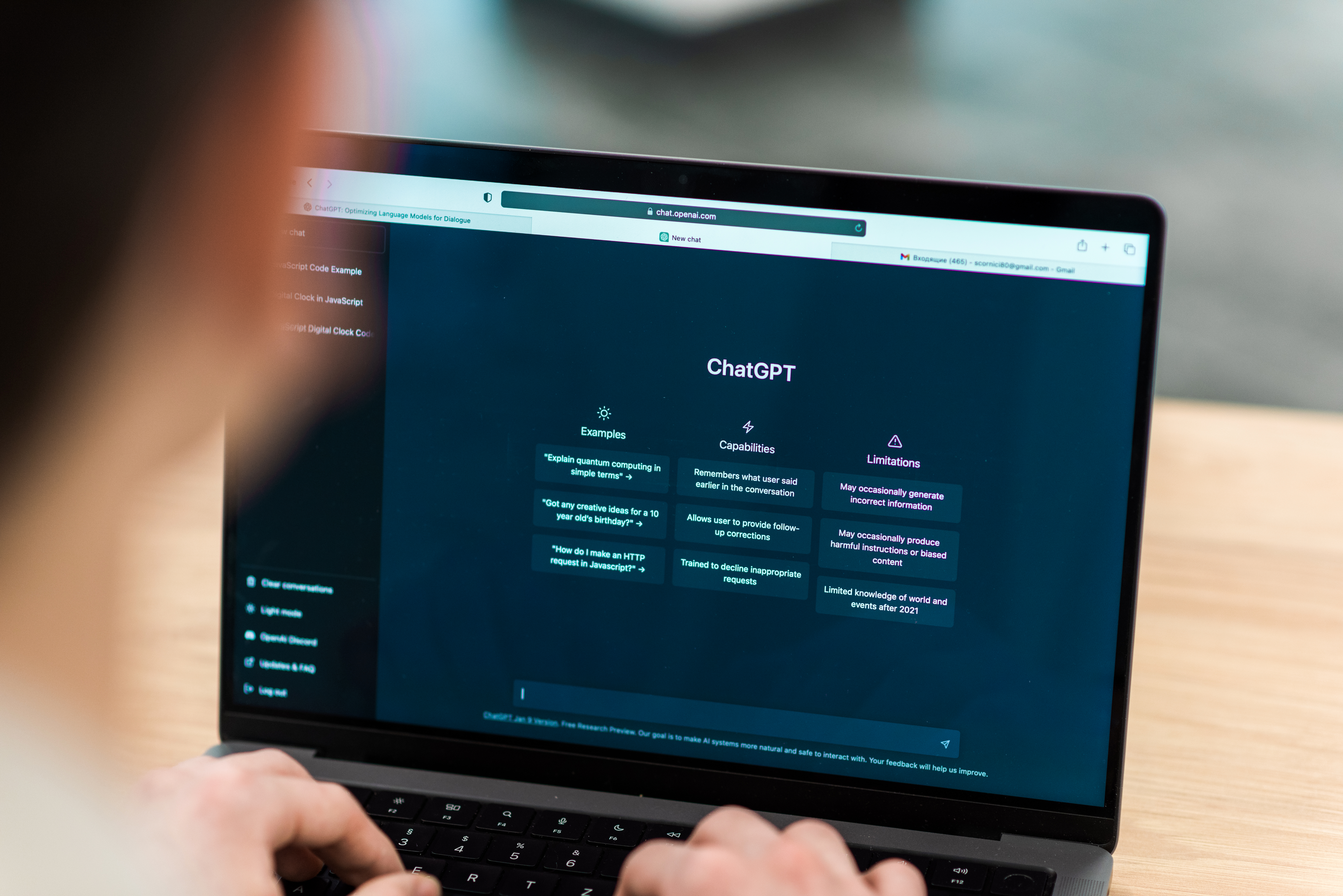5 Ways Small Businesses Can Use AI to Their Advantage in 2025
ByJulian Gette
Workast publisher

Workast publisher
Small business owners face the challenge of having too much to do in too little time and with limited resources. Bank of America's 2024 Business Owner Report shows this pressure takes a real toll: 70% of small business owners made tradeoffs to stay profitable, and 45% of them did it by working more hours.
AI tools help solve this issue. They save time, reduce operational stress, and improve productivity across nearly every business function. Harvard Business Review research found that 69% of businesses using AI report improved efficiency. Even more striking, 91% of SMBs say that the use of AI helped increase their revenue, according to Salesforce.
In this article, you'll learn five practical ways small businesses use AI to reduce repetitive work, maximize human potential, and work more efficiently.
AI for small business is technology that handles work normally requiring human thinking: analyzing data, drafting customer responses, or managing routine tasks automatically.
Tools like ChatGPT are examples of generative AI, which takes simple requests and delivers fast, natural-sounding answers. This helps business owners save time on writing, research, customer communication, and repetitive tasks that would otherwise eat up their day.
According to Goldman Sachs research, about 80% of small businesses using AI say it boosted their efficiency and productivity.AI achieves this by enabling small business employees to handle specialized work (like marketing, website design, and content creation) that would normally require outsourcing or new hires.
Small businesses have one big advantage here. Unlike big corporations stuck with complicated processes, they can implement AI tools quickly and see results faster. More than half of the SMBs using AI report better data for decision-making, while 49% say it helped them offer new capabilities.
That said, as businesses adopt these tools, understanding the ethics of using generative AI in business becomes increasingly important. Key concerns include data privacy, potential bias in AI outputs, copyright implications, and ensuring human oversight.Smart business owners use AI to support (not replace) human judgment, verify AI-generated content for accuracy, and set clear policies about how their team uses these tools.
AI helps small businesses work faster and smarter in nearly every part of their operations. From marketing to accounting, these tools handle time-consuming tasks so owners can focus on growing their business. Here are five practical ways to put AI to work in 2025.
Marketing is one of the biggest challenges for small businesses. It requires diverse skills, constant attention, and time that's always in short supply. AI helps by automating repetitive tasks and making campaigns more effective without requiring a full marketing team or agency.
Small businesses are using AI in marketing to:
Automate campaign scheduling and posting across social media, email, and other channels
Analyze customer data to identify patterns and improve audience targeting
Track competitor strategies and market trends to stay competitive
Personalize messaging by segmenting audiences based on behavior and preferences
Predict customer churn to improve retention before customers leave
In addition to these marketing functions, AI has transformed content creation. With the rise of large language models (LLMs) like ChatGPT, Claude, and Gemini, small businesses can now produce marketing content at a pace that was previously hard to imagine.
AI-powered tools help with topic suggestions, headline optimization, and initial draft generation. Business owners use them to create blog posts, social media captions, email campaigns, and product descriptions, freeing up time for strategy and customer relationships.
That said, AI content needs human oversight. Treat AI output as a first draft that requires fact-checking, tone adjustment, and brand alignment before publishing. Some teams also use AI humanizer to refine generated copy to make it sound more natural and on-brand. The smartest approach is using AI to handle the groundwork, then applying your expertise to make it authentic.
Sales comes with a lot of admin work. Tracking leads, updating records, following up with prospects, and analyzing data all take time away from actual selling. AI helps by automating these tasks and turning mountains of data into clear next steps.
Using AI in sales can help small businesses to:
Automate data entry and updates so reps spend less time on manual work
Score leads automatically to focus on prospects most likely to buy
Forecast sales and demand based on past trends and current signals
Suggest next actions for moving deals forward
Optimize pricing based on market conditions and customer behavior
AI tools also provide strategic advantages. They can spot cash flow problems weeks before they hit, manage inventory by predicting when to restock, and drive online sales through personalized product recommendations. This level of insight used to be reserved for big corporations with massive budgets, but now it's accessible to businesses of all sizes.
Customer service is crucial for small businesses, but delivering fast, helpful support around the clock is nearly impossible without a large team. AI changes that by providing instant responses, 24/7 availability, and personalized help whenever customers need it.
Some of the many uses of AI for customer service include:
AI-powered chatbots that answer common questions instantly and route complex issues to human agents when needed
Sentiment analysis tracking customer satisfaction across emails, chats, and reviews to spot problems early
Self-service tools that allow customers to find answers through smart search and knowledge bases
Personalized responses based on purchase history and past interactions
And customers appreciate it. 80% of people who interacted with AI-powered customer service reported positive experiences, particularly appreciating the fast responses.Today, roughly 60% of B2B and 42% of B2C companies use chatbot software to handle routine questions, freeing teams to focus on relationships and more pressing tasks. The result is faster support, happier customers, and less stress for everyone involved.
HR is essential for small businesses, but hiring a dedicated HR team for a handful of employees rarely makes sense financially. AI helps by handling tasks across the employee lifecycle, from recruiting new talent to managing records and developing your team.
AI in HR handles tasks like:
Drafting recruitment materials like job descriptions, interview questions, and candidate emails
Screening candidates automatically by filtering applications based on specific qualifications
Managing employee data in one place for payroll, benefits, time tracking, and reviews
Planning future staffing needs by spotting skills gaps and retention patterns
Guiding job applicants with chatbots that answer questions and point them to relevant openings
AI-generated content still needs human review, but the time saved on routine HR work is significant. This frees business owners to focus on what really matters: building a strong team and company culture.
When you first start as a business owner, you and your small team might find yourselves handling business accounting on top of everything else. But the learning curve can be steep if you've never done it before. You may not even know what you don't know.
AI helps by automating many of the time-consuming tasks that accounting requires:
Automate data entry and categorization so transactions are recorded and organized without manual input
Process payroll accurately while eliminating the human errors that affect up to 8% of manual payroll processing
Reconcile accounts automatically by matching transactions to bank feeds
Prepare for tax audits with tools that organize financial records and ensure compliance
Generate financial reports that provide real-time insights into cash flow and performance
The time savings add up quickly. According to KarbonHR’s State of AI in Accounting Report 2025, firms that invest in AI training unlock seven weeks per employee per year in additional capacity.More importantly, 93% of accounting professionals now use AI to move beyond basic bookkeeping and offer strategic financial guidance. For small business owners, this means less time spent on parsing spreadsheets and more time actually understanding what the numbers mean for their business.
AI helps small businesses save time, work smarter, and become competitive without needing massive teams or budgets. From marketing and sales to customer service, HR, and accounting, these tools handle routine work across nearly every part of running a business.
AI isn't a magic solution, and it won't fix everything overnight. There are real challenges: cost, learning curves, and data privacy concerns. But for businesses willing to start small and learn as they go, the benefits far outweigh the hurdles.

